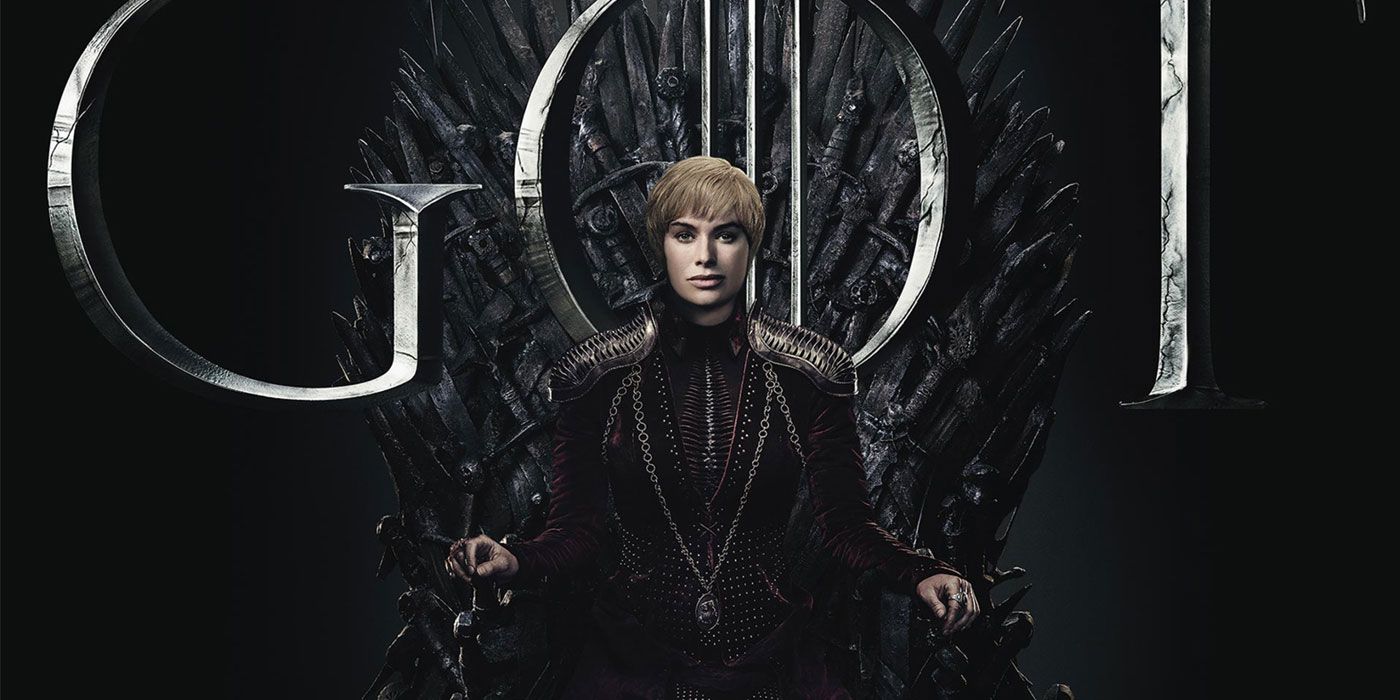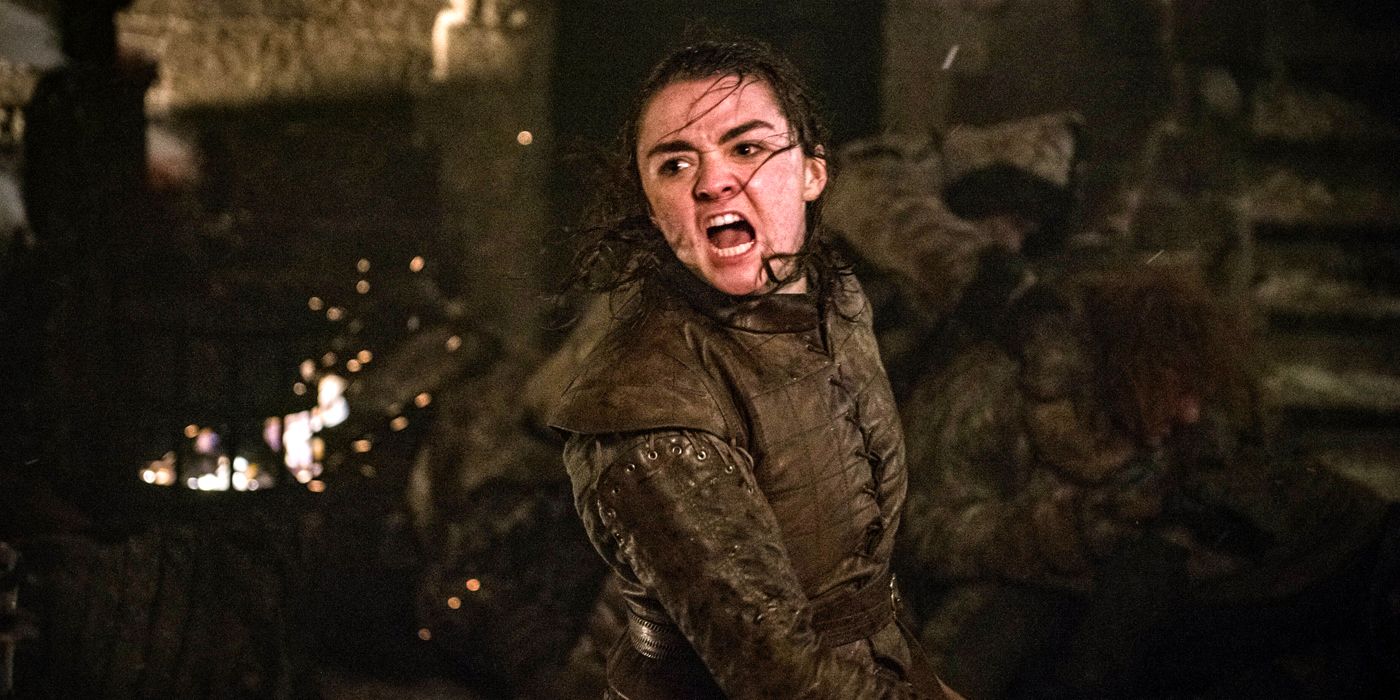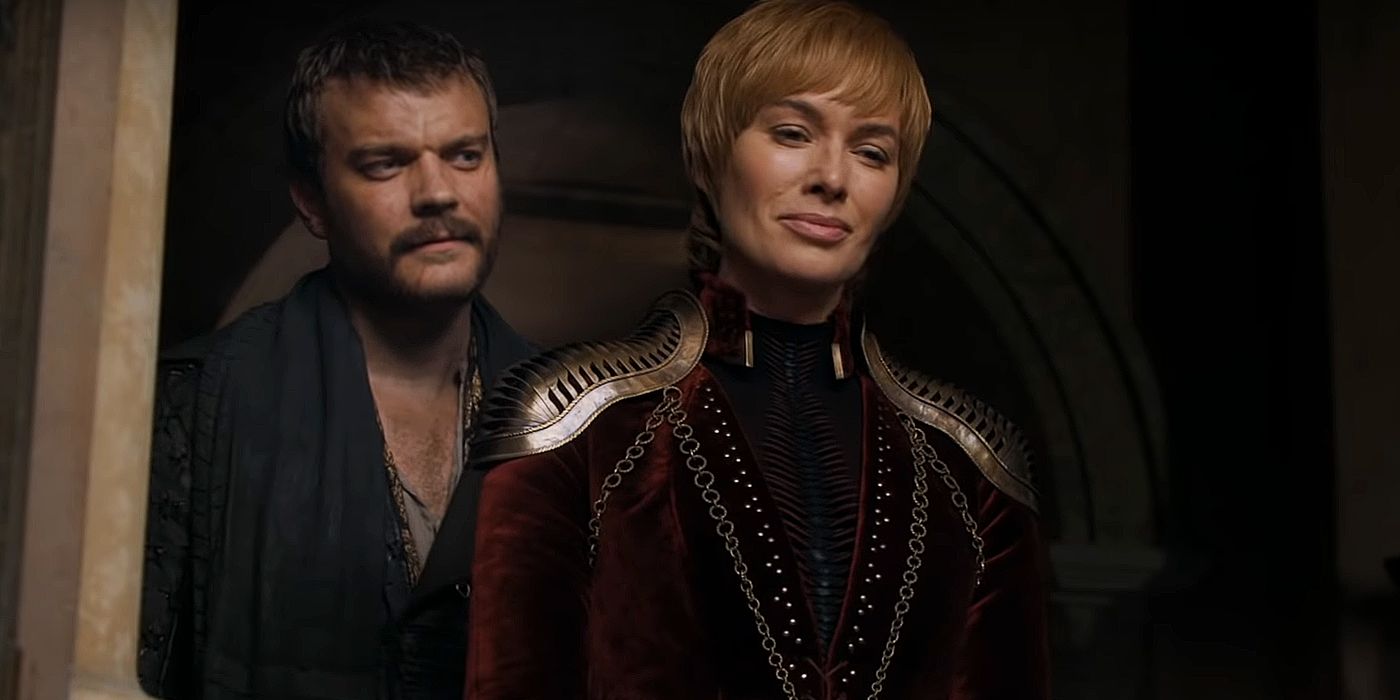WARNING: The following contains spoilers for the latest episode of Game of Thrones, "The Long Night," which aired Sunday on HBO.
Ever since its first season, Game of Thrones has been a series that has kept its audience guessing. When it debuted, it appeared we would follow the series' main hero Ned Stark along in his quest... but that expectation was quickly dashed. Audiences thought they had it all figured out when Robb Stark stepped up to avenge his father, only to once again have the rug pulled out from under them.
As characters continued to fall, the series' real protagonists slowly revealed themselves. Jon Snow stepped up as the main hero while the series' ultimate villains were finally given a face with the Night King. The two characters seemed destined to face each other on the battlefield, the fate of Westeros hanging in the balance.
So, of course, the latest episode completely changed everything we knew about the series. Again.
In "The Long Night," the White Walker army finally comes to Winterfell for an epic battle of ice and fire. All of the series' heroes are there, taking part in the fight to safeguard Winterfell, Bran Stark and, of course, the future of all humanity. Going into the episode, it seemed all but certain that Jon Snow and the Night King would clash, and that's the confrontation the episode seemed to be building to... until it wasn't.
In the battle's final moments, it was Arya Stark who leaped from the shadows and slayed the Night King, taking down the entire White Walker army in one fell swoop. The moment came as a surprise, not only because it positioned Arya as the battle's victor, but because it eliminated the White Walker threat three episodes before the series' end.
What at one point appeared to be the series' endgame has been dealt with, and the remaining episodes will turn the show's attention back to King's Landing and the titular dispute over the Iron Throne.
Though it reframes the entire series, it also makes perfect sense. While we thought Jon Snow was the main hero, it now appears as if Arya has been the series' main character and hero all along. After all, she has been on a clear arc ever since her debut on the show, a journey that tranformed her into one of, if not the deadliest woman in Westeros. Every season has guided her closer to this status, and now she just saved all of the Seven Kingdoms from the White Walkers.
This changes everything we thought about the series' main villain as well. From their first appearance, the White Walkers appeared to be the series' ultimate threat, the final boss as it were. However, now that they're gone, we revert back to Cersei Lannister who, after all those years, is as scheming and despicable as ever. Just as Arya has been on a steady arc ever since the start, so too has Cersei. Now, she is the last threat standing, and she has yet again schemed to amass a formidable army.
It's no accident that Cersei is still, after all these years, at the top of Arya's kill list. The young Stark has yet to enact her full revenge, and now there is little doubt that this has been series' real endgame all along.
"The Long Night" changed our perception of Game of Thrones. We thought it was building to a confrontation between Jon Snow and the Night King. But now, it appears as if our attention should have always been on the series' other major rivalry, Arya Stark and Cersei Lannister, all along.
Airing Sundays at 9 p.m. ET on HBO, Game of Thrones stars Peter Dinklage as Tyrion Lannister, Nikolaj Coster-Waldau as Jaime Lannister, Lena Headey as Cersei Lannister, Emilia Clarke as Daenerys Targaryen, Sophie Turner as Sansa Stark, Maisie Williams as Arya Stark and Kit Harington as Jon Snow.



